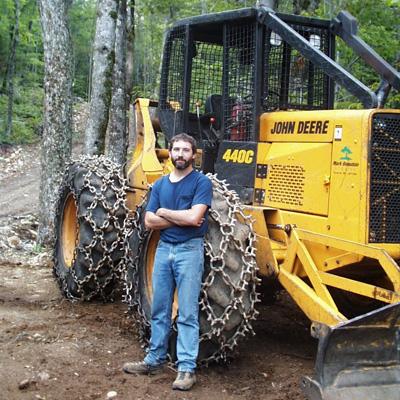Business and Employment Stability and Sustainability in the Logging and Forest Products Community of New England and New York

The forest products industry is a major contributor to the economy of the Northern Forest region. The state of Maine, for example, ranks first in the country in the percent of its economy that is forest-dependent. In addition, Maine, New Hampshire, and Vermont are among the most forested states in the nation, and many communities in the region depend on the forest products sector for employment and economic vitality. However, recent population and land use pressures, increases in forest practices regulations, high costs of doing business, and lack of reliable labor have caused instability in the logging community.
Through focus groups, mail surveys, and interviews, NSRC researchers gathered detailed information about the logging community and logging and mill businesses in the New York-New England region. Perspectives from loggers and sawmill managers provided insight into logging business stability and logging employment, as well as into the sustainability of the forest products mills that directly depend on the logging community.
Results suggest concerns among mill procurement managers and loggers about land development and terminal harvesting. Operation costs were cited as primary barriers to maintaining or expanding forest products businesses, and logging’s lack of occupational prestige makes it difficult to recruit young loggers into the profession. A review and modification of local and state zoning regulations, taxation, and current use assessment may encourage small landowners, who dominate this region, to maintain forest ownership. Logger professionalism, through logger certification and master logger programs, may help improve the image of logging.
Download printable version [PDF]
Download full final report [PDF]
